
Author: Sayaka Murata
Title: Convenience Store Woman
Read it in two days, the book was an extremely light and fast read. I loved the protagonist, I related hard to the way she blends in with her normal coworkers to seem like less of a turbo autist. The work talks a lot about expectations put on adult women, how after a certain age you're not seen as normal if you don't want to have children or a husband in an extremely conformist society. Your value is assigned to you based on how good of a mother and wife you are. The writing style is really simple which is what got me into it so easily. I really recommend it, especially to any woman that ever felt pressured into being a baby machine. Lastly, I loved the contrast between the way someone is treated and perceived as a "weird" woman, to the way someone is treated and perceived as a "weird" man. The man is much more hostile and self-absorbed... Many such cases! P.S. I hate the book covers with the "This book made laugh! It's hilarious!" qoutes. Way to miss the point lmao.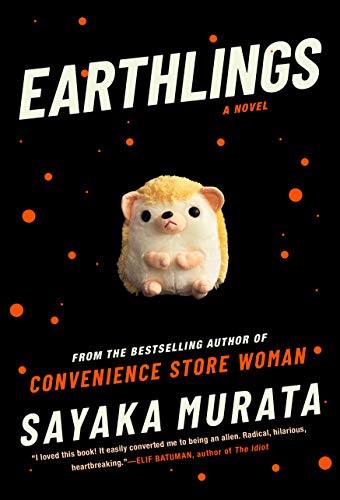
Author: Sayaka Murata
Title: Earthlings
Another fast and light read, this one I couldn't even put down. Everyone compares it to Convenience Store Woman, so I will too, simply because it seems like a spiritual succesor. Truth to be told, I liked it more than CSW. The ending impressed me and shocked me, at the risk of sounding like a psycho, I envied it a bit. Sometimes you just want to go wild you know. Truly unhinged, really beautiful. I think I said it before, but Earthlings is CSW on steroids. It feels like the author went where she truly wanted to go in her most unhinged fantasies and I applaud her for it. Maybe it hammers the baby factory aspect a bit stronger than CSW but I don't care. I love crazy stuff. It has some gore and absurdity which is right up my alley.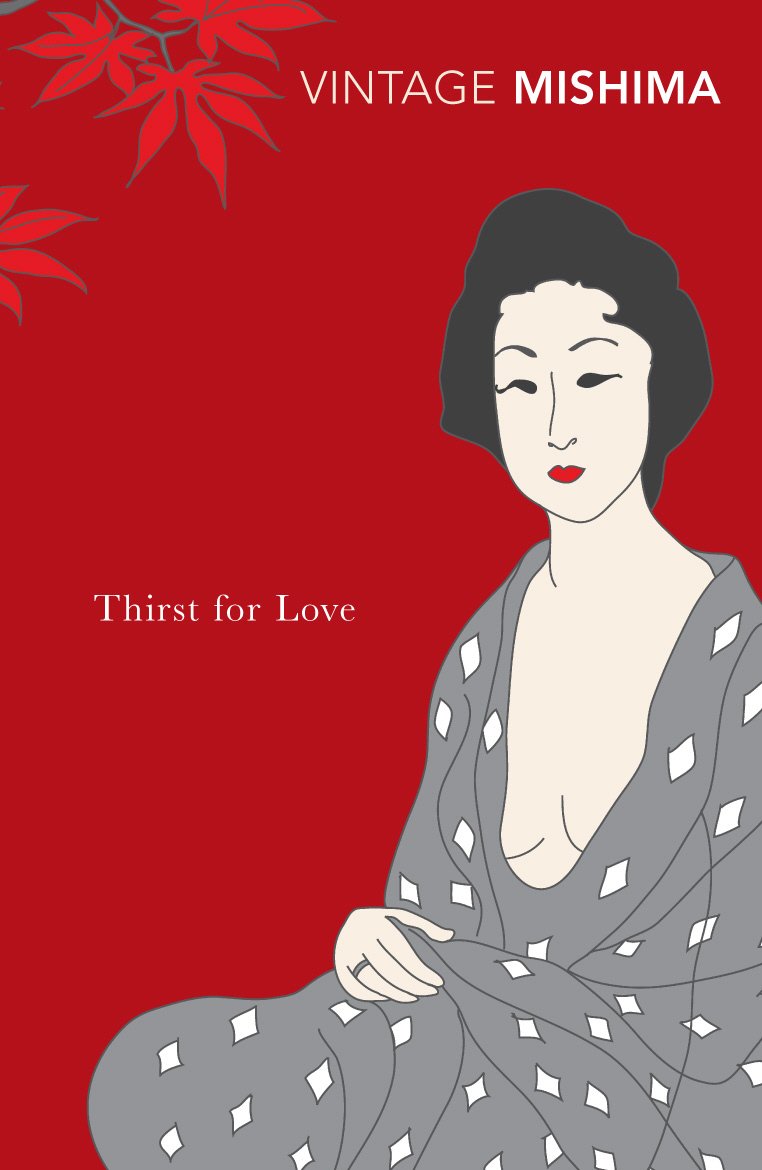
Author: Yukio Mishima
Title: Thirst for Love
Yukio Mishimas writing style is a bit more descriptive than Muratas or Yoshimotos, but I think it's still decently readable even though the prose is much slower. The whole book I was really in it with the main character, Etsuko. You really feel her passion and control AND the lack thereof. Her obsession and her love are so strong, contrasted with Saburo's thoughtlessnes and carelessnes it leaves you frustrated. I loved Etsuko as a character, despite how short the novel was. I can't say the ending caught me completely off guard as I was sort of expecting it, but the way it happened was unexpected.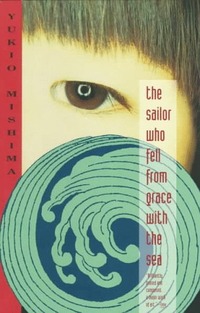
Author: Yukio Mishima
Title: The Sailor Who Fell from Grace with the Sea
I couldn't find anything about this online, and unless the trope of "a group of early teenage boys with a psychopathic leader that act like all knowledgeable philosophers and think aging will dumb them down" is a common one in Japanese fiction, I feel like this book inspired Usamaru Furuya's Litchi Hikari Club a manga about a group of teenage boys doing psychopathic things and trying to reach immortality or whatever. It's a gorey twist on the fear of puberty and growing up expressed through extreme violence. Anyway, this book had this although it could be more political I feel. And reading some reviews to make something of it I guess I'm right. Not that interested in that aspect, though it's important to note it. Mishima was a "bit" of a nationalist. Anyway these teens are naive, but not innocent. They view life through the lense of heroism and glory, and living with an amazing purpose. Naivety is a good word for being obsessed with glory,honor and the like. They're frustrated by mundanity of adult life, they hate their fathers, they don't want to become them. I really really liked this book, but I'm a bit frustrated as I can't exactly put into words why I liked it. I guess I like seeing children being scheming little sociopaths, although the cat scene was really uncomfortable to read. I don't like reading about animal violence.
Author: Banana Yoshimoto
Title: Asleep
Ah, this book was so lovely. A break from Mishimas almost horrorish stories, despite the fact Asleep deals with death a lot more. It's a novel that contains 3 separate short stories. All three of them have these tiny supernatural elements and with how people confront their dead loved ones, enemies, friends. The second one was my favourite. All three main characters are pretty distinctive from each other, each having their own interesting quirks, surrounded by all kinds of people. Seriously, I love all these characters, you meet them all for a very short time but the glimpse you get into their lives is enough to leave a mark and make you want to hang out with them. Which is how I felt about the second story, there's something so comfy about it. I'll give a quick tl;dr: A woman that feels like shes turning into an alcoholic, in a relationship with a dude that owns a store but he used to do some shady business... Nonetheless he's very carefree and lets her live her life. She keeps dreaming of an old enemy, a girl who she battled with for the attention of a dude they both used to date, a phase of her life she's not particularly proud of. They'd both stay at his house at the same time and just growl at each other while competing for the attention of the guy. Anyway, she comes to terms with her feelings and comes to the conclusion that maybe her and that girl were actually friends.. or maybe more? Spoilers ahead kind of.Then she finds out the girl died a while ago, and her boyfriend takes her to a midget that can communicate with ghosts. I mean, what a story!! And I loved how her and her boyfriend communicate, I don't know, this one was just insanely charming. The third ones main character was the most relatable, and it's where the novels title comes from. I too sometimes feel like I nap my life away.
Author: Banana Yoshimoto
Title: Kitchen
Similarly to Asleep, Kitchen is a novel divided into two short stories. It also deals with the themes of death and coming to terms with it, but also another added thing. Since this was the 80's I'd be inclined to say transvestites? instead of transwomen, or even men in dresses but mainly how someone, usually the female main character, perceives them. The first story intrigued me, and the way the trans character was handled. In fact, both the trans and the cross dressing character do so as a way to cope with a major trauma in their life. Eriko was a man, but he became a woman once his wife died and he was left alone to care for his son. In a way he replaced her. Could it be because to be a single father is different from a single mother? Maybe he viewed men as incapable of providing motherly nurture to their children, it's an interesting idea. I do not think fathers are incapable of that in theory, but many men do have and become fathers like that. He is truly an amazing person though. From an outsiders perspective, I noticed Japans view on gender, gender change etc. is a bit different from the West. But this is just my personal limited experience of course. In media I see them talk about okama more, which would be more of an effeminate gay man that may or may not cross dress and it's also an offensive term to some. I also noticed they're big fans of non binary shit, but I have no doubts that it's because of extreme gender roles their society enforces so it does not surprise me. By creating another binary though, one cannot escape gender roles, in my humble opinion. In the second story there is a cross dresser character, who was described as weird, and a free spirit. After the death of his brother and girlfriend, he starts wearing his girlfriends uniform to school. People are shocked but ultimately sympathetic. Men wearing dresses, and generally being gender non conforming is one thing they have a harder time with compared to women. That is of course, because being a man is seen as the default. Women's world is seen as something that one doesn't need to dabble into, so when a man does so, he is seen as weak. It can also be a sign of sexual deviancy, and many people dont really feel comfortable with that in public... Either way, both stories were really somber, cute, and even inspiring at some points.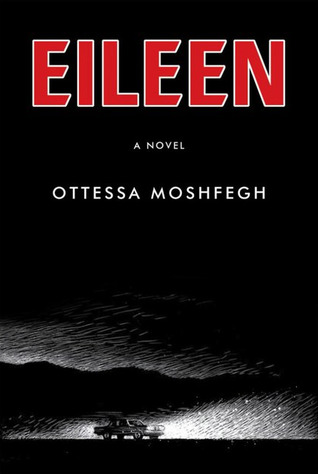
Author: Ottessa Moshfegh
Title: Eileen
This book was just what I needed. Eileen was 24, I am 24. Maybe this review will be more personal than the ones I wrote so far, but whatever.Tl;dr: this book is about a woman, 74, writing about herself when she was 24 and when she ran away from home. She often makes remarks about how naive, angry and invisible she was up until she ran away and I understand that. Throughout my life, I had few instances of reinventing myself when arriving to new, unfamiliar places such as university and high school. I completely sympathize with her hate for her coworkers, and the childish, petulant anger I directed at them in my thoughts.
“Your sweater's on backwards, Eileen,” said Mrs. Murray. I pulled up my collar to check. “Or maybe not. You're just so flat, I don't know what side I'm looking at—front or back.” They went on and on like that. It was awful. I suppose my manners were just as bad as theirs. I was terribly grim and unaffected, unfriendly. Or else I was strained and chipper and awkward, grating. “Ha-ha,” I said. “Coming or going, that's me—flat.” I'd never learned how to relate to people, much less how to speak up for myself. I preferred to sit and rage quietly.
If this passage doesn't describe the way I felt working in that drugstore for 3 years, I don't know what does. I truly appreciated reading this book at this point in my life where I am on another journey where almost nobody knows me, in a whole different country. I don't relate to Eileen as a whole, but the parts where we're similar truly hit hard. But enough about me.
This book is truly, really good at detailing a character and making her feel alive. I completely understand Eileen. All her contradictions, everything. It all made sense. How she says she's not superficial, how she's a prude, yet in her mind she's obsessed with grousome things, and she spends her days daydreaming and fantasizing about a man. It's so good. Many people call Eileen too whiny, self-loathing and self-pitying but I don't really think so. She talks about herself quite critically, and for an old lady recounting her days of youth I don't think it is out of place. She felt bad for her old self being where she was. You would feel bad for yourself too.
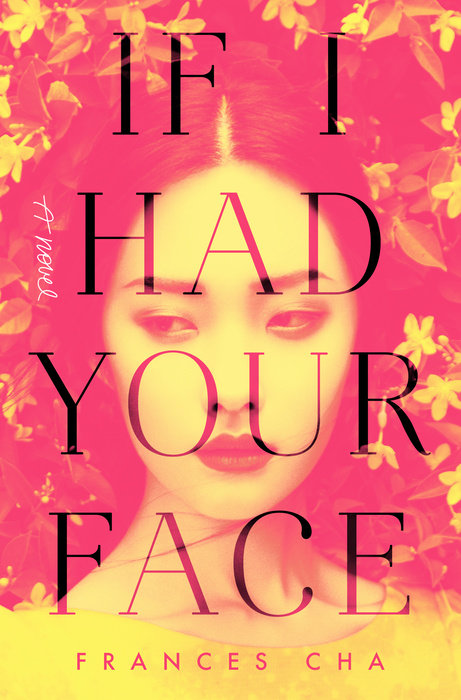
Author: Frances Cha
Title: If I Had Your Face
Every day I wake up, I thank God I was not born in South Korea. Joking of course, I am not religious. But I'm still thankful not to be a Korean. This book only affirms my views. The entire time I was reading this, I was filled with unease, sadness and anger. To live in the 21st century, in a country so incredibly obsessed with your status, your looks, your family, where you went to school, university and so on and for all of that to amount to zero because as a woman you are still nothing but trash. Just trash. What a shithole. It always boggles the mind - in a country where men cheat on their wives and girlfriends so much, where clearly being a degenerate unfaithful male is seen as somewhat of a standard and an expectation if you are rich, basically in a country where men are more openly animals, you still have to be careful not to offend their fragile little minds by shielding them from saying the word menstruation and instead having to say feminine products. They can't keep their dick in their pants for 10 minutes but they still feel shame from being reminded women have periods. It was such a short remark but points out this ridiculousness of it all, it made me so angry.This book is about 5 women. Ara, Kyuri, Wonna, Miho and Sujin. All of them except for the last one get to have chapters told from their POV. They're a group of roomates, friends, acquintances, neighbours. The book heavily focuses on Koreas obsession with status, plastic surgery, superficiality, getting married and so on you get the gist. It's all told to you from their perspective, and you get to see how all of these circumstances influence the girls. The book was a quick read, once I actually started reading it for real I couldn't put it down. I cried a few times near the end because I know these types of situations are real. And Wonna's situation made me particularly sad although it was bitter sweet in the end. This book wasn't my first clash with korean culture, their society and the way people suffer in it. It made the book heavier to read. If you're interested in these kinds of things - beauty standards, high expectations, women's place in a highly misogynistic society etc. this book will be great. Besides that, it's a book about five women being friends despite all their differences, despite the internalized misogyny deeply wooven into their very being, they still care for each other and help each other climb up as much as they can. It's such a brutal world, honestly I feel like I'd crumble under the pressure.
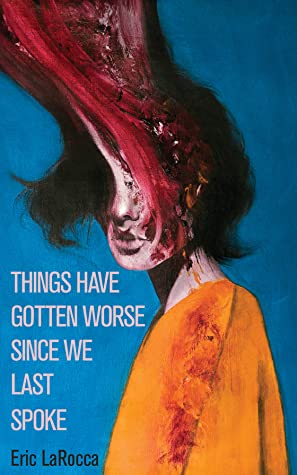
Author: Eric LaRocca
Title: Things Have Gotten Worse Since We Last Spoke
I didn't really like this book. The book is about 2 women exchanging emails and ims when suddenly their exchange takes a "dark" and "twisted" turn. I've seen this book get recommended in multiple places I frequent so I figured it might be a decent read, I like internet spooky story related stuff but this didn't really sit well with me. First I didn't really like how both characters had almost the exact same writing style, on top of it being overly pretentious and full of unecessary similes. Then I didn't really like how their relationship took such a sudden turn into bdsm bullshit, when there was barely any development or build up. Third, which is purely subjective, it made me cringe. I'm no stranger to online relationships, cringy erp and creepy internet drama. I've experienced a lot of it first hand too. I've seen some stuff. So this kind of just makes the experience of this book a lot less enjoyable. I get that it's the year 2000 and all but there was something really unnatural in how these two characters were conversing and if that's what was supposed to be creepy about this book, it kind of missed the mark because both of the characters talk like they came straight out of the "in this moment I am euphoric" copy pasta. The most disgusting parts of the book are crushing a salamander with a rock, a kitten dying by being ran over, the mc eating a piece of rotten meat in order to get "pregnant" with a tapeworm, a little child getting tortured. Which really, while it might make you wince or feel bad for the animals, is not as sick and twisted as people made it out to be. Plus a lot of the shit from that stupid bdsm contract was retconned in the "Masters" emails like almost right away and the fact that it was an online relationship just made it all the more laughable. With how everyone was describing it, I was expecting more. Even the author made it sound a lot wilder than it really was. Also something about this book being about two women, but the two characters don't read to me as women at all. After anonymously interacting with men and women for a long long time, you actually get decent at recognising who's who even if they don't state it outwardly. Women and men are socialized differently and that's just the way it is. Ending this review with a do not recommend.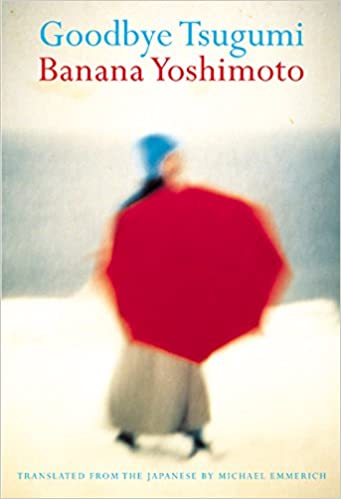
Author: Banana Yoshimoto
Title: Goodbye Tsugumi
Out of all the Banana Yoshimoto books I've read so far this one is my... least favourite. It's not bad at all, and it's not like I didn't enjoy Banana's prose and characters but this time it didn't leave me feeling the way I felt when I read her shorter stories. Nonetheless, it's a nice book. It tells us a story of Maria's last summer spent in her hometown on the seaside, a turning point in her life. Very young adult, coming of age kind of thing. Frankly can't say I don't relate to that to a frightening degree so of course all the feelings this book is supposed to invoke in you, were invoked tenfold in me at my current stage in life. I always enjoy Banana's portrayal of happy and intimate families, and this book didn't disappoint either. The love story between Maria's parents is really sweet, and her dad is a great dad. I always like reading about well-functioning families. I guess the character that didn't sit well with me was Tsugumi, although I get the point of her character, I think. Just didn't vibe with her lmao. She's too anime-ish, I guess that's what I didn't like. She stands out too much in that way, so it ends up being a bit jarring. If you like reading about coming of age stories, or more like "this is the point where everything is going to change" stories I recommend this.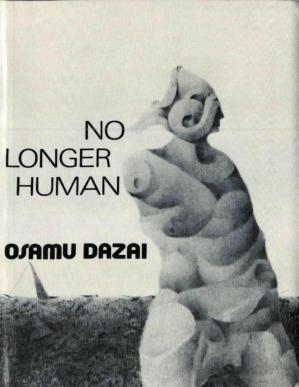
Author: Osamu Dazai
Title: No Longer Human
First of all, I really loved the short length and the succinctness of this book, and it's the reason why I love modern Japanese authors in general. No Longer Human is something one might call autobiographical fiction? I think? A lot of the events here coincide with the events in Dazai's life. My expectations for this were hard to describe, as online I've seen it regarded as a masterpiece everyone should read or as a "TOP TEN shocking books you should NOT read if you're depressed!!!!". Frankly I side with the former. I can't say I'm in the best state of mind right now, but this book didn't make me want to kill myself or anything. Now onto the book itself.I mostly want to write about the main character, Yozo, as I found him to be really fascinating. Yozo is an extremely interesting and well written character, and why wouldn't he be, when he's basically Dazai himself? What I found to be the most intriguing about him was his misogyny. It seems to completely be a reflection of himself. When it comes to misogyny in general I feel like much of what I've read when written by men is pure projection of their foulest innermost feelings onto women and then proceeding to hate them. In Yozo's case I would say it's very similar. However I don't think his disdain for women is based on power dynamics or an inferiority complex, but it is a combination of the facts that he was abused by a female servant as a child, and that in many women he meets, he sees his miserable self. He is very well aware of that. He says he doesn't understand women, but of course he doesn't, when he does his best to be misunderstood by everyone else. Deep down, various women are who he ends up relating to the most. His life is based around performing, pleasing and fear. He recognizes and is aware of the fact that his good looks are seen as lewd, rather like a woman's looks would be, as opposed to being seen as strong and powerful. He is the one being wanted, an object of many women's desires, as opposed to him doing the wanting (his wife aside, but even this part is really interesting!!). He is self-destructive and untrusting following his childhood trauma as opposed to releasing his hurt onto others as an abused man usually would, judging by general statistics. He deemed himself to be weak and a coward, and weakness is generally seen as a feminine stereotype. You can see why now maybe I came to the conclusion that he relates to the way misogynistic society sees women. In fact, women are often seen as lesser than human, a view Yozo himself shares when talking about prostitutes. And that is how ultimately he sees himself.
I'd also love to talk about his view of Yoshiko and the focus on her virginity. When talking about her virginity, her purity, I don't think he was necessarily focused on her physical virginity. In fact, his sexual relationship with Yoshiko isn't even brought up much. Rather the focus is on her pure and untainted view of the world, allowing her to be trustful of everyone. This is something Yozo lacks, and he loves Yoshiko for being a living and breathing example of this purity existing in a world such as this. When that trustfulness ends because of her rape, Yozo's hope crumbles and he goes back to self-destruction. He is not able to forgive her, or not forgive her, as ultimately this was not her fault. But even there he acknowledges how he lacks a certain authority your usual husband would have in this case.
I mostly focused on the topic of misogyny here as I haven't seen many other people talk about it in depth, but there's many more things I found compelling about Yozo. His performance, his anxieties and the concept of comedy and tragedy. And of course, there's more to him being "disqualified" from being human than just his sexual abuse and lack of trust in the world. This book is definitely worth reading and I found it to be quite insightful. Isn't it interesting how a man that feels wanted by women feels gross about it? Dehumanized even? Haha...
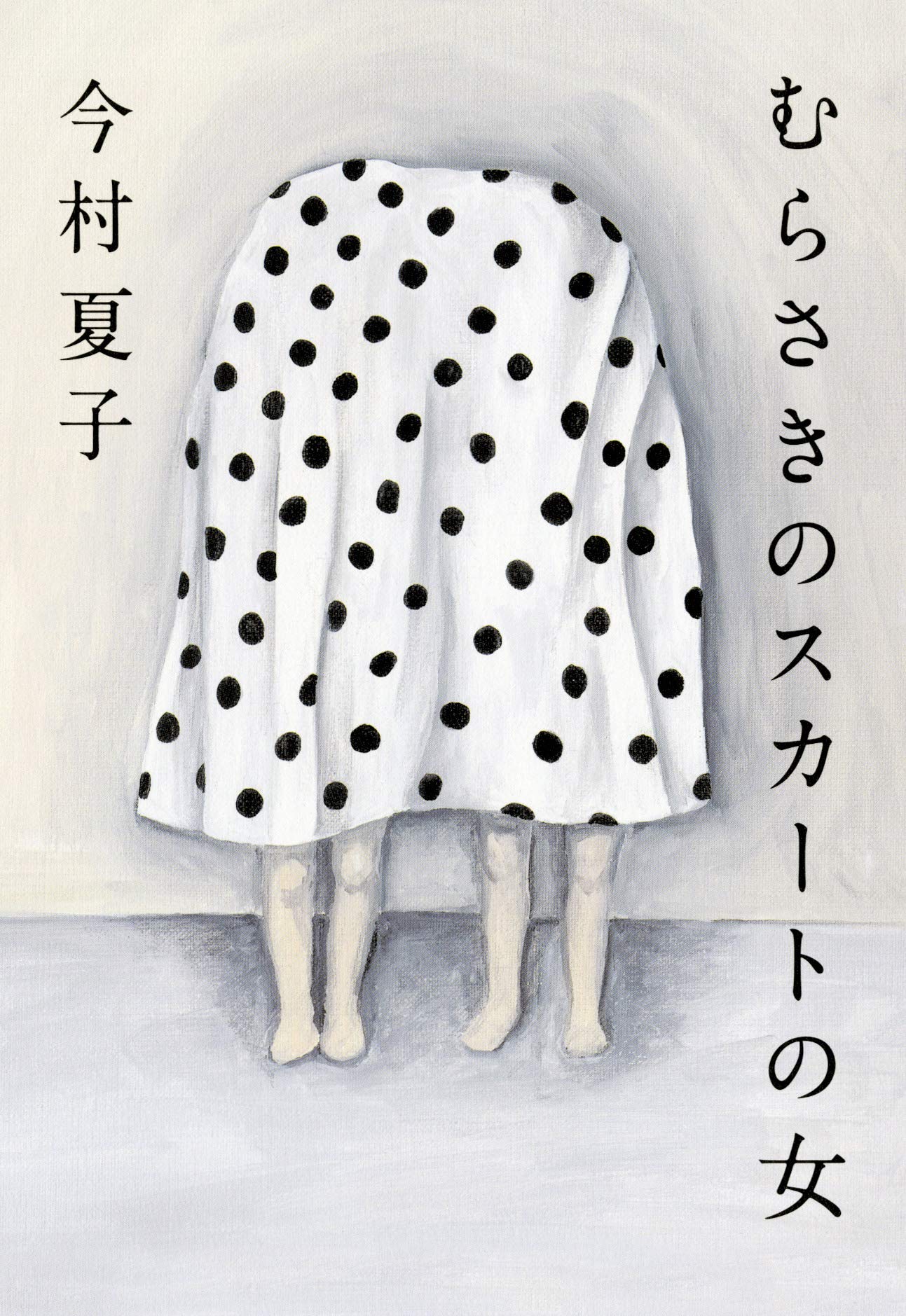
Author: Natsuko Imamura
Title: The Woman in the Purple Skirt
This book was a really light and fast read. The story is about the stalking of the Woman in the Purple Skirt (twitps) by the Woman in the Yellow Cardigan (twityc). It's told from the perspective of twityc, who really wants to get closer and befriend twitps, so much so she lures her into working together. Both of these women are strange loners living uninteresting lives but one of them manages to catch everyones attention, while the other remains ignored. As two similar people, it is very interesting to observe how the two are treated throughout the novel. Sometimes being quiet equals cute and elusive, and sometimes it equals boring and ignorable. I do not believe the focus of this story is creepy obsession, rather envy and yearning for something you cannot have, some mysterious quality which allows you to have people orbiting around you. Not sure if that made much sense but I think it's a worthy read!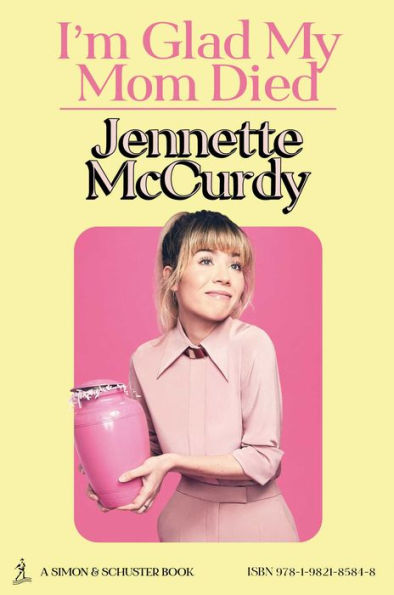
Author: Jennetee McCurdy
Title: I'm Glad My Mom Died
I rarely (read: never) read books that just came out, or celebrity autobiographies for that matter. I didn't even watch iCarly nor have I ever been invested in Jennette's life. Yet... I really felt like reading it. Maybe it's the title, I'm Glad My Mom Died. It's a very bold, shameful and hard thing to openly admit. It's not like it hits personally at all since my relationship with my mom is the complete opposite of hers yet, I just had to read it. The cover is very cheeky too, it really caught my eye.I don't want to spoil too much since it's new so I'll just say this book is mostly about her relationship with her abusive stage parent mother - and her dealing with the results of that relationship after her mothers death. One of the other big topics it covers is her eating disorder/s (courtesy of her mother) and her hating growing up, womanhood and femininity because of a combination of things such as religious upbringing, controlling parent and showbusiness. It also details the process of a child stars anxiety-ridden ladder climbing, and just how traumatic and hard on the child it all is.
I enjoyed her writing, it wasn't tedious and it felt snappy, dry and sarcastic. I read the book in one day (320 pages) and it didn't put me to sleep at any moment. I don't think she hired a ghostwriter as she has always had a passion for writing. The book didn't leave me disappointed at all, I got exactly what I wanted - finding out how a young woman came to terms with her deceased mother being extremely abusive. Jennette seems like a really smart woman, and a really smart child for figuring out her mother in ways nobody else could and I really loved reading about her more bitter and dark thoughts.
Also I didn't think this would be worth noting but the book is written chronologically, and Jennette's inner thoughts are also chronological and match how she felt and thought at those specific moments in time. I've seen people complain about her being an annoying NLOG as a 30 year old because she as a 5 year old didn't like ruffles and flowery dresses... Lol.
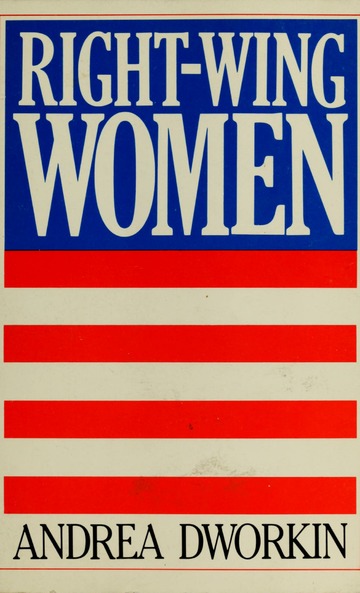
Author: Andrea Dworkin
Title: Right-wing Women
Long story short - I loved this book. Dworkin gives us an insight into the mind of a right wing woman - and why she does what she does. Each chapter talks about certain problems women face as a class, and then it circles back to the right-wing woman. Why does she decide to be right wing, and why is she so passionate and outspoken about it? Why does she oppose abortion? Why does she hate homosexuals? The truth is, right wing women are often aware of the same realities feminists are, they are not stupid. However, the way they go about life, what they decide to do with the reality of the female status, is different. They do not fight the system, they learn how to live in it for the purpose of survival. This book goes further than just talking about right wing women and the way they see the world though. The last chapter titled Antifeminism goes into detail about women's place in patriarchal societies, about the "separate-but-equal" concept, the farming and the brothel model (woman as a mother, woman as a prostitute). While in some ways the book is a bit outdated, in other ways it's realer than it ever was before. Especially when it comes to the prostitution and porn parts. It serves as a warning in many ways, as the topics this book discusses are becoming more relevant again, i.e. abortion and women losing their rights again. I wrote down all of the bookmarks, so expect a whole page dedicated to my favourite qoutes soon. Maybe. Dworkin was extreme in her views and her words, she never pulled her punches and didn't hold back in the brutality of her words. She got to the point. She didn't tiptoe around her words. I think we need more of that.
Author: W. David Marx
Title: Ametora: How Japan Saved American Style
This book gives a comprehensive overview on men's fashion in Japan and how it evolved starting with the Treaty of Kanagawa in 1854 when Japan opened their borders to trade with the United States. The "save" in the title doesn't necessarily bear the meaning of "rescue", instead it has the meaning of archiving and preserving. Japan succesfully preserved American fashion of the 1960's (and more) which allowed Americans to come back to it. The book explores a multitude of styles, and does a good job of summarizing the journey Japanese fashion went through. It started with simply copying already outdated American trends, to keeping up with them, to revolutioning said trends, to inventing trends of their own. It also does a good job of explaining Japanese culture to people unfamiliar with it, and it analyzes why exactly subcultures, fashion as a lifestyle isn't/wasn't such a viable/common thing in Japan, as much as it is in the West. Definitely worth a read!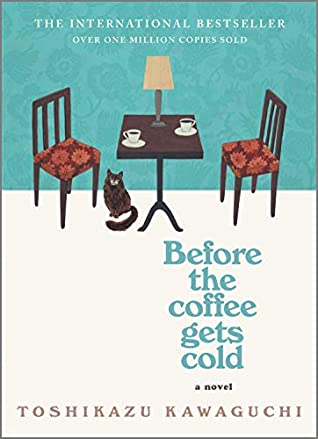
Author: Toshikazu Kawagucki
Title: Before the Coffee Gets Cold
I started reading this book 2 months ago, while travelling. For some reason, if I don't finish a book before my journey ends, I always forget about it when I reach my destination. I only had the last chapter left, and now 2 months later I finally finished it. I found this book to be very charming and sweet. The magical realism is perfect. Mwah. Just the perfect amount. The premise is simple. You have a cafe. In that cafe exists the posbility of travelling into the past, but only under very specific conditions which almost makes the whole experience "worthless". Or does it? The only thing I'm not particularly fond of was the last story, centered around a woman determined to give birth even though she knows she's going to die 100%. Lately I've been bumping into this "she (sometimes he too) was born with a fragile constitution and a strong will" trope so I'm a bit tired of it. Interestingly enough, I have never met somebody like this in real life...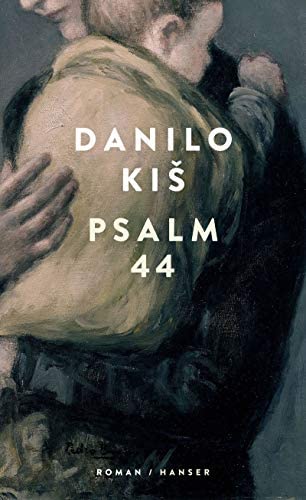
Author: Danilo Kiš
Title: Psalm 44
Thou hast made us like sheep for slaughter,and hast scattered us among the nations.
Thou has sold thy people for a trifle,
demanding no high price for them...
Thou hast made us a byword among the nations,
a laughingstock among the peoples.
All day long my disgrace is before me,
and shame has covered my face.
Psalm 44:11-14
Psalm 44 is Danilo Kiš's first novel. Based on a real story he read in an article, about a couple with a newborn child who escaped from a concentration camp. The story in this novel is told from Marija's (the wife's) perspective, hours before the escape with her friend Žana, as they ruminate in their barracks next to their dying friend. There is a lot of stream of consciousness writing, and as I described the narrative to my husband he said it sounds very recursive - and yes it indeed is extremely recursive. Marija goes from lying near her dying friend awaiting for escape in the present, to remembering an encounter with her husband, to remembering their first encounter, to remembering her life in the village and so on. There is a lot of "ands" and "thens" and the sentences can be long and drawn out. Despite that, I didn't find it hard to keep track of, and in fact I found the prose impressive. The story is full of anecdotes in Marija's life, and most of them will leave an impact. Her fathers speech, her witnessing a massacre, her friend in a coffin, the skulls etc. The book is very short yet every sentence carries a lot of meaning. Most of Danilo's work is heavily influenced by his own experience during the Second World War, what with his jewish father being taken away and killed in a death camp, what with him witnessing the Novi Sad massacre in 1942. Something I really appreciated in this novel, and frankly didn't even expect when I read about the premise, was the female perspective and narrative. Marija is the protagonist, and undoubtedly the story is centered on her and the way she witnesses and perceives treatment of other women during the Holocaust, which was horrifying and gruesome. Female-centered narrative combined with her being Yugoslav gives us a piece of Holocaust literature that is less commonly shown, and as the translator John K. Cox says, it makes this novel stand out in a very dense genre.
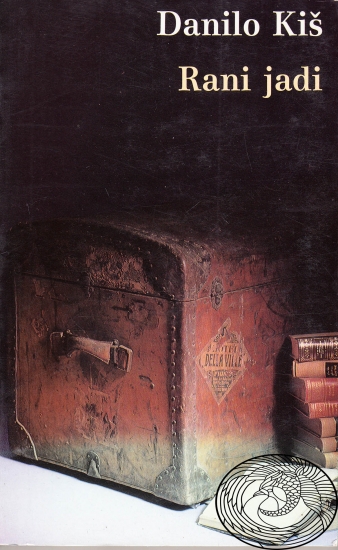
Author: Danilo Kiš
Title: Early Sorrows
This book was really cute. It's a compilation of short stories from a life of a boy, Andreas Sam. As you see I'm going to continue with Danilo Kiš spam because I need to read a lot of his books for a uni class. Do you ever have to be in the right headspace to "comprehend" a book you're reading? Well, when I started reading this two days ago, I felt like I wasn't. Initially I was bored by it, and at first I thought it's because I'm reading in my native language which I kind of got unused to in the recent years. But around story 4 or 5, I really got into it. It's a lot more child-like than Psalm 44, so I can see why its short stories are read for book reports in middle schools in Serbia. The full name of the book after all is: Early Sorrows: For Children and Sensitive Readers. Once again, it's set during the war years, but unlike Psalm 44, Early Sorrows is a lot more autobiographical. The short stories are almost idylical, if it weren't for the unsettling darkness looming in the background. The story with the highest recognition (and the one I heard of before, but never read it) is The Boy and the Dog. I didn't expect it to hit me as hard as it did, but I was sobbing when I finished it. Probably because of how similar I found it to be with my relationship with my cat that passed away recently, down to the fact that it wasn't truly my cat, and my neighbour was the original owner. A few other stories in this book also made me shed a tear, once again because I relate to the life Andreas has been living as a child, and I felt a nostalgic longing for my grandparents' big garden and chickens. And my mother, my sister and my crazy father... But much like the wild chestnut street at the start of the book, my grandparents home has been destroyed, and it is now gone. First the walls cracked, then the ceilings blackened and the floors rose. Now it's just a pile of rubble. Things that were there in my childhood are now no more. If you're an adult going through a period of homesickness, read this short little book that will surely strike a chord!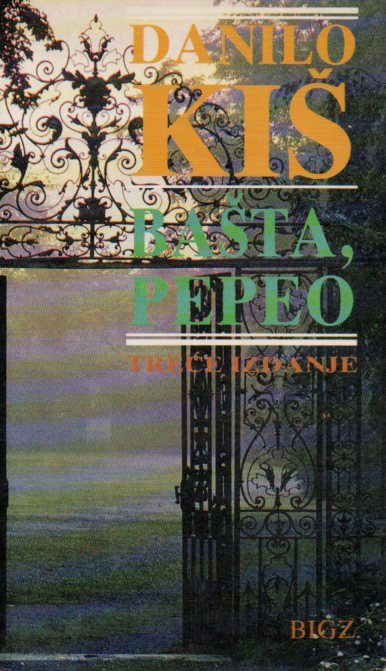
Author: Danilo Kiš
Title: Garden, Ashes
The second book from the "Family circus" trilogy, "Garden, Ashes" features a big change in Danilo's writing form. In Psalm 44 we had a more typical and predictable clear structure and plot. Early Sorrows was a collection of short stories but it started to signify Danilo's change in how he portrays the Holocaust way more indirectly in his writing. Now "Garden, Ashes" is the midpoint of where things get weird, and "Hourglass" will be the peak. I think I'll talk about the meanings of this form after I read "Hourglass", because I don't really have the full picture. Instead I'll mention the father-son relationship in this book, which I believe also serves as a parallel for Andreas' (Danilo's) relationship with his jewishness. His mother was montenegrin, his father was jewish, but he was baptised into the Orthodox Christian faith. Ultimately this saved him from being killed during ww2, but it also made him less close to his father. His father thought of himself to be an eternal victim, an Ahašveroš - the Wandering Jew, misunderstood genius. He was an alcoholic, crazed philosopher, flat-footed strange man that was always in and out of Andi's life. The mark he left on Andrija was mainly his frequent dissappearences, along with his final, most impactful one. The war is almost entirely in the background this time, and it can only be observed through brief mentions, posessions being taken away etc. There's no specific plot, it's more of a book full of rambles and ideas and experiences. It reminded me of Proust, although I find Danilo's irony and humor more interesting. I haven't read Proust since high-school though lmao.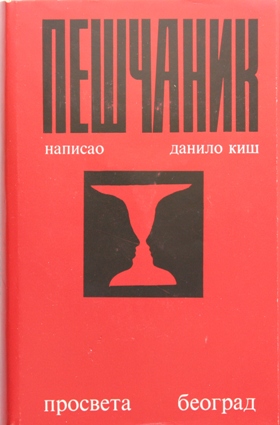
Author: Danilo Kiš
Title: Hourglass
The third book from the "Family circus" trilogy, at last! It took me a while because I was reading 3 other books simultaneously and then got distracted by manga and anime... Anyway, this one was the craziest of all. Kind of an antinovel almost. Weird form, a lack of form, although the more you read the more you get into the style. This book was based on a long crazed letter Danilo's father wrote to one of his sisters in April of 1942. Apparently the letter never got sent, and it was Danilo's only remaining proof of his past and where he lived. In the letter his father talks about the way his remaining siblings treat him horribly (by not lending him enough money lmao), about where he lives currently, about how his former rented apartment collapsed right as he exited it etc. The book is divided into a few intermingled parts and most of the book is written in an interrogation style, concerning the collapsed house. The main character, E.S., has to recount many of his actions leading up to the event and what happened afterwards. This is a book I'd definitely have to re-read later in life, and I often found myself retracing through paragraphs to make sense of things. One interesting thing I noticed is that only in the last portion of the book does the main character come into the focus. Until then it's pretty unclear who's narrating, and it gradually becomes more clear. There's a lot of "hidden" references to the Holocaust (bar the actual interrogation), like certain humiliating bureocratic processes E.S. had to go through, fear of being stopped by the police, a lot of allegories like the rats that destroyed his house, being chased by dogs, long chimneys etc. etc. but they're even more in the background of the whole story compared to the other two books. Maybe hidden reference isn't the right word, more that they're presented very matter-of-factly that it forces you to gloss over it. Great example of unconventional holocaust literature. Really a long way from Psalm 44, and I think this literary journey was pretty rewarding in that sense.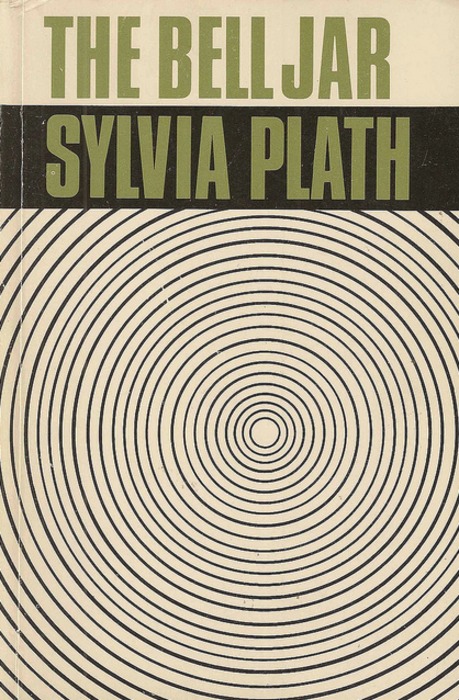
Author: Sylvia Plath
Title: The Bell Jar
This book has quite the legacy behind it, apparently, but somehow I've always missed out on the talk about it and what it represents, and the type of people that read it. Apparently this books is popular with edgy high school girls going through their emo phase, an important feminist work etc. but that's as far as my knowledge of it goes. This will be important later.So, the book. The book itself was pretty good. I can recognize it as an important work in its time, and I can see myself in Esther when I was at my worst. I liked how incomprehensible it felt at moments with the setting switches, it's a good way of showing on paper how time stops mattering when you're not well. Everything felt... meaningless in a way and as you read you just go along with the motions. The talk and obsession about virginity, purity and similar themes were things that went through my head when I was a teen so.. yes. Even with all of that though, and knowing it's Plath's semi-autobiography it didn't hit me as much as I thought it would. Instead, I felt pretty detached reading it. Weird how that works.
Now a "little" anecdote. I decided to read a bit about the book after I was done. To read through some articles, opinion pieces, to get a better understanding of its cultural impact I missed out on and all. And I stumble upon this article called The Bell Jar and White Feminism. Apparently in this book, Sylvia commited many horrible wrongthinks completely unfitting of your typical run of the mill progressive 50's female (sarcasm), such as comparing white characters and their expressions to other races and ethnicities, something I've seen male writers do since I started reading books in elementary school - haven't seen anyone get criticized for it and frankly I don't think there's a need to but that's just me and my outdated eastern european sensibilities. When she said a woman had a "vacant Slavic expression", I'm not going to pretend I didn't understand exactly what she meant by that, as such her comparisons and descriptions did a fine job of well, comparing and describing. Then there's also an interaction between Esther and a black worker, whom Esther treats very unkindly. That is indeed a rude and racist thing to do but... am I supposed to be shocked and apalled that a white middle class woman in the 50's who got put into an asylum after electro shock therapy, that got stripped of much of her agency is now venting out her frustrations on someone she, maybe subconsciously, maybe not, has prejudices against? Then the next banger line from this article was how Sylvia was extremely homophobic because Esther, a born and raised christian, referred to homosexuality as a "specific evil". Okay and?? Did we completely miss the lesbian context to that scene, miss...? Shit I just noticed I'm getting angry at a high schoolers article. Oh well, let me continue since I'm almost done and this last line isn't coming from the high schooler anyway. Lastly, we get this little speech about intersectionality in feminism and how "We are people with different bodies, gender expressions, faiths, sexualities, class backgrounds, abilities, and so much more. We need to take into account these differences and how they affect us, as much as we account for what we have in common. Without this kind of inclusion, our feminism is nothing." . But then, that should also include conservative, racist, homophobic and religious women too, no? Dumbasses. You can't just exclude Sylvia Plath from feminism because she wasn't a perfect 2022 yas slay kinky queer bimbo queen libfem lmfao. And, unrelated to this article I've seen people calling her a "raging, rabid anti-semite" and I did my best (first 3 pages on google ok im lazy) to find out why people called her that and the only example was that she compared herself to a jew in one poem which, you know what, read Andrea Dworkin's Scapegoat and it makes sense even!! Women being compared to Jews and vice versa as an insult is not a new thing. Yeah yeah it might have been insensitive and appropriating or whatever people say these days but I don't see how it's raging and rabid. People are making it sound like she was sad she didn't stand next to Hitler during his speeches. I can't with this. Seems like nobody is capable of contextualizing and understanding that literature isn't necessarily evil just because it shows a character having "bad" thoughts and actions.

Author: Mieko Kawakami
Title: Heaven
Heaven is Mieko Kawakami's first full length novel. I really liked Breasts and Eggs so I gave this one a go because of it. It's a pretty simple story about middle school bullying, and morality from teenagers point of view. Kids truly can be the biggest sociopaths and bullying is a pretty good example of that, especially in Japan. It's a topic that's commonly explored in japanese fiction, I've encountered it in pretty much all forms by now lmao. Not just bullying, but the commonly brought up concept that you have to "relieve tension" through violence, porn, rape/prostitution, consuming extremely violent or perverse media in order to stay normal, or whatever. I guess my one complaint was how the characters spoke with each other, at certain moments it felt a bit too unnatural, kind of villain-monologue-like, especially that one conversation with Momose. I'm not sure a bully would be so completely honest with himself when speaking to the bullied, even though I think he was mostly right when it comes to explaining why people bully. Also the MC's.. masturbation habits.. were interesting, both as a parallel of a way of relieving tension and anxiety, and from a point of view of a freshly emerging virgin/whore complex, something the story doesn't really touch upon.This book is a pretty good exploration of two conflicting ideas - we're suffering for a greater purpose vs. nothing has meaning, and the MC serves as a meeting point of those two. I noticed some people described this book as torture porn or as pretty explicit in its description of bullying, but I don't think it was that horrible. It's a book about bullying so, what you see is what you get. Maybe Mishima's animal torture scene set the standard too high that this didn't even make me flinch lmao. Lastly, I liked the ending, it brought a good conclusion to the conflict.
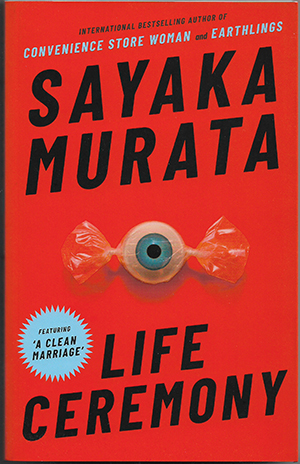
Author: Sayaka Murata
Title: Life Ceremony
Life Ceremony is a collection of short stories, many of which seem to have inspired her two novels Convenience Store Woman and Earthlings. The stories are mostly concerned with societal conventions, human integration or exclusion from nature and female sexuality. Most of them have a female protagonist, and even though I said they seem to have inspired her previous novels, usually you'll have the same characters appear in a similar setting (like the cousins that are in love, from Earthlings) but with a different story tied to them, or a different conclusion and theme. A lot of topics in this book are meant to provoke unease or confusion for the sake of removing you from the common sense you're used to, so that you can't really tell the right from wrong. You're inclined to side with the one character who finds cannibalism disgusting, but that makes no sense in a society where this became a sacred ritual that promotes life and helps the human race survive.Honestly I liked each and every story in this book, I really love Murata's voice and what makes her, her. Even though everyone's attention was grabbed by the more shocking stories featuring cannibalism and weird what if scenarios, the story that weirdly stood out to me was Body Magic, because it talks about teenage sexuality in a very pure and honest way, and it sneakily disses porn culture and how corrupted our view of sex is because of it. Especially as a young girl, being able to free yourself of the eternal performance that's expected of you is the main road to enjoying yourself and having a healthy relationship with sex. I don't think many teen girls had that luxury growing up, because they're stuck with performing porn tropes for their coomer teen boyfriends.
Lastly, I loved the feralness of it all. I relate to it so much, I grew up with a similar mindset and ideals many of her characters share so she's one of those writers that truly speak to me through her books.
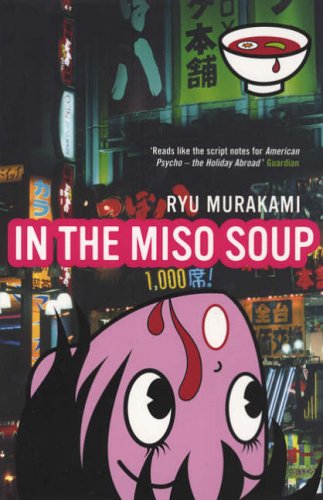
Author: Ryu Murakami
Title: In the Miso Soup
I remember when this book got translated into my language, more than a decade ago. It was pretty rare back then to see modern Japanese literature get translated, so naturally, me being a young weeb, I wanted to read it. As it turned out though, I never did, until I bought this book for almost nothing at the book fair this year. I had absolutely 0 idea what was waiting for me so I wanted to search for a quick summary before I got into it. Turns out it's about a Japanese dude who works as an illgeal sex tourist guide, and he has to help a fat and awkward american tourist called Frank experience the sex industry in Japan, while also solving a murder mystery - kind of.First I'd like to mention the translation, because I think the translator made some interesting choices. He kind of gave the main character a "I come from the capital" vocabulary, including some slang, but without one of the most important things that mark that dialect which is the way in which we say "what". He opted out for the literary version as after all this is a book, which in my opinion kills the point of the slang and the more casual and rude words he used I think. This is why I'm not a huge fan of modern books in my language, our spoken language differs a lot from written language, and it almost seems like an unspoken rule that our books have to be written in the literary, bookish language, so things end up sounding unnatural. Well, I can't actually say I read our post 21st century lit so don't quote me on that.
This book falls into one of those "all the people that surround me are the scum of the earth including me" stories which I find myself reading frequently for one reason or the other. The mc, Kenji, often goes into monologues in his head about how empty and soulless Kabukichou residents are, so towards the end of this short book I kind of got tired of it. He does try to give this more pessimistic, underground perspective on Japanese society but I also feel like he criticizes women in a more negative light than the men. While men working as pimps "lose the life in their eyes" the way in which he describes them has a sympathetic tinge to it, almost as if he feels bad for them. Prostitutes and semi-prostitutes don't get the same treatment, especially if they're Japanese, the foreign ones did. Japanese women have everything handed to them and they're only whoring themselves out because they're lonely... is the vibe I get, there's a lot of contempt. I can't really buy that. I did however enjoy the scene between the American tourist, Frank, and two Japanese club girls (not really hosts, too lazy to look up the correct english term) where upon discovering that Frank is from New York, they excitedly tell him how it's their dream to go to New York and visit Niketown. Frank is confused because what the fuck is Niketown, spoiler it's just a stupid Nike store. But the Japanese girls are so obsessed with american brands that they start scoffing at the dude not knowing what Niketown is, and even doubting if he's really from New York. Honestly after reading Ametora this whole Japanese obsession with american brands and culture makes more sense to me so it's funny to see it in a book. This book was published in 2003 and of course things have changed since then, but imagining a succesful and developed country like Japan have this provincial mentality only the dumbest people in my country have towards brands etc. is just so fascinating.
Lastly, I wasn't a fan of the "villain". Going to spoiler everything here, if you don't care about the ending, do read it. Since this book is mainly about how the Japanese treat and view foreigners I was expecting the ending, the murderer and everything to be totally different, specifically I was expecting the murderer to not be a filithy gaijin. The murderer does ends up being Frank, and he has a split personality and some crazy ability to hypnotize people. Yawn! At the beginning of the book a news anchor claims how the way in which some high school girl (killed by Frank) was murdered, chopped off, raped, and thrown in different places around Tokyo, was too gruesome for a Japanese person to have commited (el oh el), so it was most likely a foreigner. I thought something more would come from that, and we'd get some commentary on this distorted perception the Japanese have of themselves, but nah. It really was a crazy, lobotomized American to have commited the crimes. Booooring. The whole final stretch of the book after the gruesome murder scene was thus, kind of dissappointing for me.
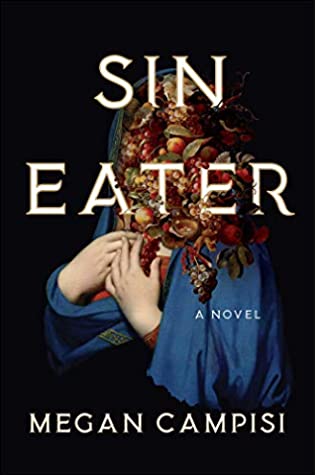
Author: Megan Campisi
Title: Sin Eater
The Sin Eater is a historical fiction book set around the 16th century in England. For some reason I don't catch myself reading books set during that time period so this was a welcome change of scenery. Sin eating as a concept is a real life occurrence, apparently in multiple cultures as well. This book takes that concept and expands upon it by assigning different meals for each type of sin and by increasing the cultural significance of sin eaters. People must not speak to them unless they're on their deathbed, they're not allowed to look at them, sin eaters are treated as a curse and they must not speak. The main character, May, is thrust upon her new life calling as a sin eater after being caught for stealing bread. She's only 14 and was recently orphaned. Honestly reading through the book and imagining it happening to a child was a bit depressing as she gets shunned by society and people she had known her whole life. Quickly May's job takes her to the queens court where she ends up discovering a conspiracy. After that the book focuses a lot on her uncovering the mystery and less on her duties as a sin eater. While I was interested in the whole mystery aspect I honestly would have preferred to see more of the sin-eating life than we were shown. Regardless, I think it was a nice and quick read.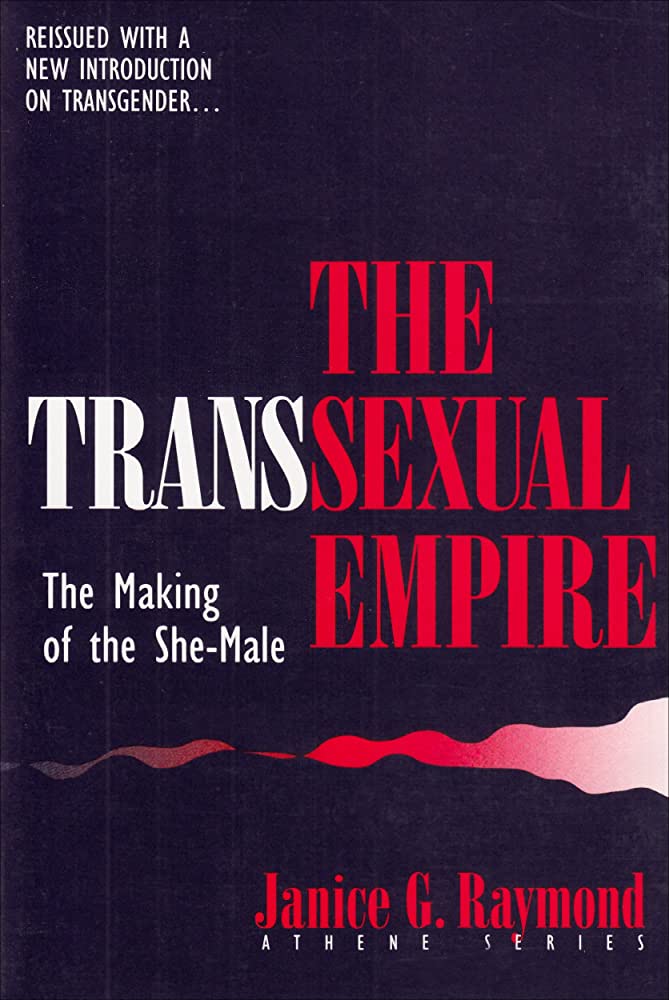
Author: Janice Raymond
Title: The Transsexual Empire
It is my deepest hope that this book will not be viewed as an unsymphatetic treatment of the anguish and existential plight of the transsexual. What I have tried to present is a different vision of where to focus sympathy and sensitivity.This book is over 40 years old. One would think it would be outdated by now, considering just how much we think had changed regarding feminism, gender ideology, and of the medicalization of a social problem. Yet somehow, this book is still relevant and many of its predictions came true.. while some of them didn't (for example - the correlation between autism and transgenderism, and pornsickness didn't seem like much of a problem at the time!). This book tells us how modern gender ideology is at odds with itself. It is largely based on the teachings of John money, yet if any modern trans person went to read his stuff - I'm certain they'd disagree in many aspects on the surface. Yet, Moneys influence is still astronomical, from the terms used to the way the medical system treats gender dysphoria today. In fact if his teachings were to be dismissed, the gender ideology movement would lose most of the ground it's standing on. At the same time, it is based on extremely sexist ideas of gender and outdated and never properly researched information. Raymond analyzed the beginnings of the movement (which happens to be a modern invention), the psychology and politics behind it, and ethical, philosophical and moral questions that surround it. Sidenote but I really enjoyed Raymond's focus on language these researchers used. It's very telling how when describing things they always switch to the male as the default even when it is not (ex. fetal development). Or how often when it comes to childhood psychology the mother is the first to receive the brunt of the blame, while the role of an absent father is a sidenote. Raymond goes through it all, to use modern relatable buzzwords, she shows us many examples of what she calls male-to-constructed-females - from women hating incels with mommy issues, to failmales, to conservative men that want to become their own tradwife fantasy, to femboys, to ex incredibly masculine men living out some sort of a sissy fantasy... And this book is over 40 years old! Nothings changed, except for the fact that the trans movement got much better at hiding its roots, which can be located deep under oppressive gender roles modern society has been built upon. So how can then a movement that's based in misogyny and sexism be tauted today as the most feminist and progressive movement that exists? Raymond advocated for transsexual people to form their own movements and groups in which they could discuss the root of the problem, she wanted to approach transsexualism from a different point of view, she wanted to treat the disease and not the symptoms of it, but none of this has come to fruition. The gender ideology movement went along its merry way, colonizing feminism and the lgb community and coming out as the winner that is now somehow on the stage gazillion of licheral genocide despite women still being killed, kidnapped and abused on a much larger scale (yes, even % wise). Nowadays, suggesting that perhaps hormones, surgery, and becoming a lifetime patient may not be the most optimal solution to a much bigger problem can have you lose your job, or even worse...
It is important to remember that transsexualism is merely one of the most obvious forms of gender dissatisfaction and sex-role playing in a patriarchal society. It is one of the most obvious because, in the transsexual situation, we have the stereotypes on stage, so to speak, for all to see and examine in an alien body. What can be overlooked, however, is that these same stereotypes, behaviors, and gender dissatisfactions are lived out every day in “native” bodies. The issues that transsexualism can highlight should by no means be confined to the transsexual context. Rather they should be confronted in the “normal” society that spawned the problem of transsexualism to begin with.
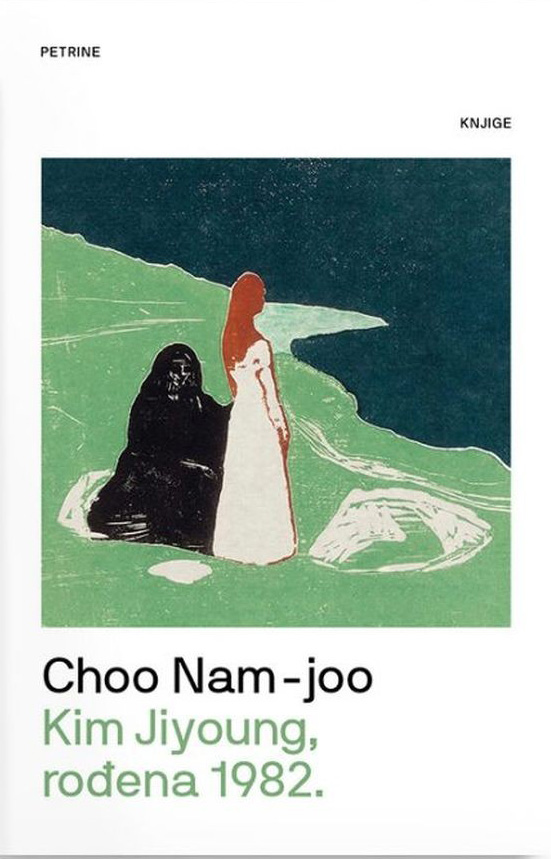
Author: Choo Nam-Joo
Title: Kim Jiyoung, Born 1982
I am not sure what keeps drawing me to read books about women's lives in South Korea, but it's genuinely fascinating. I don't think there's single other developed "first-world" country that has so much woman hate embedded into it. In my opinion, not even Japan can measure up to it. There's just something incredibly vile and rotten about this country and the way it's presented to us, to the rest of the world.Anyway, this book is about A Woman. But really, she is just any woman. Her experience is the average korean female experience. And this is a book dedicated to that experience. I loved the fact that this book has a ton of footnotes dedicated to providing "sources" for all the things Jiyoung went through.
I chose to display the croatian book cover because that's the one I saw in the bookstore when I visited it this winter and it really stuck out to me. It's a woodcut by Edvard Munch, called "Two Women on the Shore". I think it's very appropriate for this book.
Fun fact, a movie adaption was made in 2018 and the lead female actor received a ton of backlash for it. Female kpop stars that admitted to reading the book received harassment from their male fans... Simply for a book that presents you the average womans life. Nothing more, nothing less.

Author: John Edward Williams
Title: Stoner
I've had this book sitting on my hard drive for years now, staring at me. I've been stuck reading so many books partway now and instead of cleaning the backlog up (which is what I'll do now) I decided to pick up this book instead, because I've heard nothing but praise about it. And you know what, yes, I think I understand why this is memed as one of the greatest novels never read or whatever. People love their everyman stories, and I am also People, so I did enjoy it.Stoner is a novel that is both bleak and kind of comforting. It tells you the life story of a university professor who came from a hardworking and humble farmer family, it details his life as he goes through the first and second world war without volunteering, as he falls in love with English literature and teaching, as he falls in love with a woman, falls out of love, has an affair, makes an enemy, has a child, and ultimately dies. The novel begins with his death actually, and sets the scene for what the narrator tells us is a very unremarkable man. I think the time period it was set in lends itself well to the overall tone and the standoffishness of many of the characters, including Stoner himself. He is extremely passive at times to the point of utter frustration, almost ambivalent to all the stuff live throws at him.
Spoiler: I talk a lot about Edith
I think it's very rare for a story to feature a man cheating on his wife and make me feel a bit happy for him, while also not making me hate the wife. Now the second part, I'm not sure if John Williams intended it, or it comes from my, compared to others, infinite understanding for the suffering of womankind, because certainly 90% of people who reviewed this book do not share this view and they absolutely despise Edith as she is the Bad Guy (tm).
I'm mostly just sick of stories with adultery personally, but I am grown enough to understand cheating has one big grey area and life is just complicated like that. Anyway, Edith (Stoner's wife) is a very interesting character I wish we knew more about, but most of the story is told with Stoner being the focus aside from few paragraphs dealing with Edith. She is an excellent example of a woman raised in the early 1900's by weird puritanical upper class parents who want of their female child to be an ornament, almost a sex slave yet she is supposed to know nothing of it while serving her purpose of pleasing her husband. It is extremely paradoxical in a sense and the point of her existence is an oxymoron. And people wonder why so many women were "hysterical" in those times, as the novel likes to repeat that word when describing Edith, a lot. To add to that, it is heavily implied she was sexually abused while not really knowing or understanding what sex was but she learned to find it repulsive. Her ultimate wish throughout the story is to be left alone and to be free which was an impossibility for her. She also seems to have developed a personality disorder because of her abuse, frankly at first I got the impression she was autistic lol. Even though Stoner loved her, he never helped her realize her biggest wish - to go to Europe. I believe that was one of the biggest reasons which led to her resentment of him. She most likely feels as if he stopped her from living her life and truly breaking free (even though a similar fate would await for her anyways most likely). Honestly I am surprised by the amount of reviews from pretty fancy book review blogs that said stuff like "Edith the privileged rich girl nonsensically begins torturing Stoner" when really, it makes perfect sense why she did it. She was truly a product of her environment and she became a horrible person because of it, but it's not nonsensical. She couldn't stand, or rather, comprehend Stoner's honest and pure love for their daughter, so she distanced him away from her and in her mind it made a lot of sense. Fathers are not meant to spend a lot of time with their female children, after all (lest they molest them, duh!). It makes sense to me.
Lastly, Grace's destiny was not solely Edith's fault. Stoner was present the whole time. Stoner's failing came in the form of a lack of self respect, and passivity so big he let it ruin his daughter by not involving himself with her. At the end of the day, it was fine for him to remain passive and indifferent about himself, but the moment Grace got involved into the mix, he should have taken action. You can love someone with your whole heart, but if you don't step in to help them, what good does that love do? And this is his biggest offense, imo.
If you skipped the massive spoiler, the tl;dr is that people tend to massively antagonize Stoner's wife, Edith. Ultimately though, I think it's useless to point fingers at either Edith or Stoner. This is not a story about good vs. evil, it's a story about a mans life and where his decisions (and lack thereof - his fatal flaw) led him. Out of all the head scratching reviews I read about it, my favourite one was written by Miljenko Jergović, a bosnian writer. His conclusion seems to have been the most interesting one even though I don't completely agree with everything in his review:
But as much as Stoner is a victim, so is she. It's just that neither one nor the other fell as victims of "social relations" - as bad literary interpreters would like it to be - but they perished from their fate, as it used to be in ancient tragedies and as it has been until today, in literature and in life..
I believe both of them had the capacity to be different enough from their parents but they never fully realized it. I suppose you could look at this story as a tragedy... it really does have most of the markings of one.
Lastly, more related to Jergović's review than the book itself but he accidentally nailed it when talking about the overall reception of the novel where he said that meanie feminists would totally read this novel as misogynistic if they had actually read it instead of blindly praising it - and while I found this statement really stupid it actually turns out the inverse is true. It's not that stupid silly feminists were outraged over it but some of the less intelligent /lit/ dwellers will praise it for portraying a "femoid" correctly and say how based Williams was for dunking on women which lmao...
Frankly I don't want to dwell on this too much, it probably could be true Williams himself was a misogynist man, but regardless of that fact I believe he (accidentally or not) managed to make a pretty accurate portrayal of two people who had their destiny set out for them by being born into the families and the time that they were. I believe good writers can create characters realistically and with tact despite their biases and examining someones background before deciding whether or not I approve of their character portrayals is too exhausting for me...
This turned out to be one of my biggest reviews I feel like. There's definitely a lot to talk about here like the feud Stoner had with Lomax, his friendship with Finch and Masters, the implications of the effects of war on a person Stoner had the utmost respect for, his love affair, his daughters pain, the oral exam with Walker... But I guess this Stoner/Edith relationshipped gripped me the most.
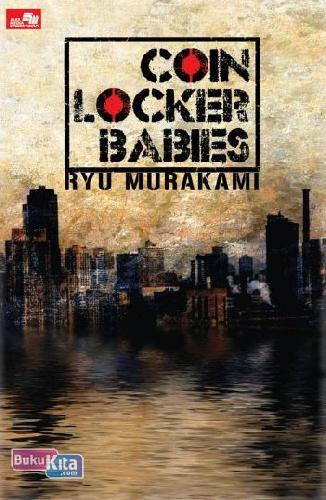
Author: Ryu Murakami
Title: Coin Locker Babies
I felt like I've been reading this book FOREVER now, yet when I went to look at the reading statistics, I finished it in 10 hours. Rip my attention span? I got curious about the wordcount though, since it took me 5 hours to complete Stoner, so I went on some random wordcount page that told me Stoner and Coin Locker Babies are pretty close in the wordcount. I thought it was impossible, so I downloaded some Calibre plugin and lo and behold I was correct, Coin Locker Babies has almost double the wordcount, which makes perfect sense. It was 700 pages long on my ereader, when Stoner was like.. 400 maybe. Weird!Anyway, word counts aside, this was a very aggressive and raw book. The plot and the characters were superior to In the Miso Soup, although I highly enjoyed the Tokyo nightlife being described in that book too. Ryu Murakami is a big fan of portraying people one would describe as the dregs of humanity. I'll address a few small problems with this book - first of which is just entirely subjective and probably dependent on my mood - I had a hard time getting through the start. The first 50 pages dragged on and on in my mind, but once I found myself in the right setting I guess, one which really fit the general mood of the novel (I'd describe it as a very hot, sweaty summer day) I started breezing through it. And so, I ended up finishing the book relatively quickly, considering my lack of free time. The second little problem I had with the book was that it seems a few plot points have been hmm abandoned? Along with a few characters I guess. I wish there was more to Tatsuo and Emiko for example, and I wish Toxitown in general played a larger role. The place seems to only appear as a transitional location where the two brothers reunite, but the first chapter it appeared in with Anemone made it seem like so much more. It's a shame because Toxitown was an interesting imaginary setting which seemed to represent a place (and feelings) born out of ww2 and the atomic bombs... It feels like Hashi's realization about Anemone also seems to have been skipped over... Other than that, I really enjoyed how the whole plot was thrown together, including the ending.
I described this book earlier as aggressive and raw, so I guess I should at least give a small plot summary. The story is centered around two brothers, not by blood, but by the way they were born. They were born into coin lockers (a common way for mothers to abandon their infants in 1970-90s Japan, but it still happens today) and were essentially left to die. They ended up being rescued but that experience has defined their whole lives, entrapping both of them in unique ways. Combine this crushing backstory with Murakami's propensity for absurd violence which is extremely vivid and surreal despite it being just written text and you've got this explosive novel about destruction and entrapment.

Author: Mona Awad
Title: Bunny
For me to properly articulate my thoughts I'd probably have to spoil a ton of shit so I'll keep it brief. I have one complaint about this book and it's that it seems kind of... juvenile? It's horror, it's weird, it's strange and gore-y but you know... idk it just comes across as a book that could very well have been set in high school and you wouldn't notice a difference. I didn't google anything about it beforehand - all I heard was that it's unhinged so it piqued my interest but now that I've finished it, yeah I can see that it's a young adult novel, particularly because of the main character who got more and more yawn worthy as time went on... The book begins in somewhat of a Heathers/Mean Girls setting and then transforms into more of a horrorish story but it's filled with tropes I feel like I grew up seeing everywhere. The ignored male friend who's a good guy(tm), the sarcastic goth bff, the quirky teacher, joining the mean girls, ignoring your true bestie etc etc. I think this book could've been a lot more and the ending left me kind of... dissatisfied! I was mostly interested in the Bunnies and how they came to be, their obsession with men that displays a weird (lack of?) relationship with sex and their friendship. In the end the book ends on a very meh and cliche note. I loved their speak and rituals and wanted to know more!!!One thing I can relate to, is feeling like an outcast in a language/writing related degree but eh... Not enough of a reason to fully enjoy this. This is totally on me for falling for a tiktok recommendation... I mean it wasn't TERRIBLE but just, ugh, missed opportunity!
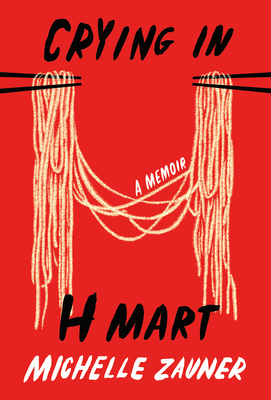
Author: Michelle Zauner
A couple days ago I was visiting my grandmother with my mom, and we were talking about taking sick leaves from work. In passing, my grandmother mentioned how she barely ever took sick leaves, but she did take a month off after her mother died. It was strange to hear that, because all stories about my great grandmother were always weirdly negative and painted her as a very difficult person. Nevertheless, my grandmother seems to have been incredibly attached to her. Even though my grandmother is very sensitive, it's hard to imagine her grieving that intensely, and it also made me think of just how much I will grieve after I lose my mother too.Thanks to Bojan's recommendation a little while ago, I bought this book at the recent book fair! I really enjoyed this memoir. In fact, while reading it, I spent a good portion crying, the other portion I spent salivating. "Crying in H Mart" is a memoir detailing the author's relationship with her mother and her untimely death, as well as how their relationship mainly was expressed through food, which is a really important part of this memoir. The author is Michelle Chongmi Zauner, a korean american, and a vocalist of an indie band Japanese Breakfast. I've actually heard of Japanese Breakfast before, specifically in the context of someone on celebricows trashing her tattoos, which I thought were really cute...
Well anyway, it's hard for me to organize my thoughts regarding this book. Since this is such a personal memoir, it even feels weird to "review" it! And now that I began reading some actual reviews on it, it seems a lot of people share the same sentiment. I truly enjoyed Michelle's journey on discovering how much food is related to her mother's love, and her pride over her culture growing as she embraced it. While reading the chapters where her mother was battling cancer, I genuinely found myself hoping she'd survive, even though the whole point of the book was about her mother's death.
There's not much else I can say, except that all topics in this memoir were something I genuinely find interesting usually. Kids growing up in the diaspora, mother daughter relationships, language barriers, good good food...
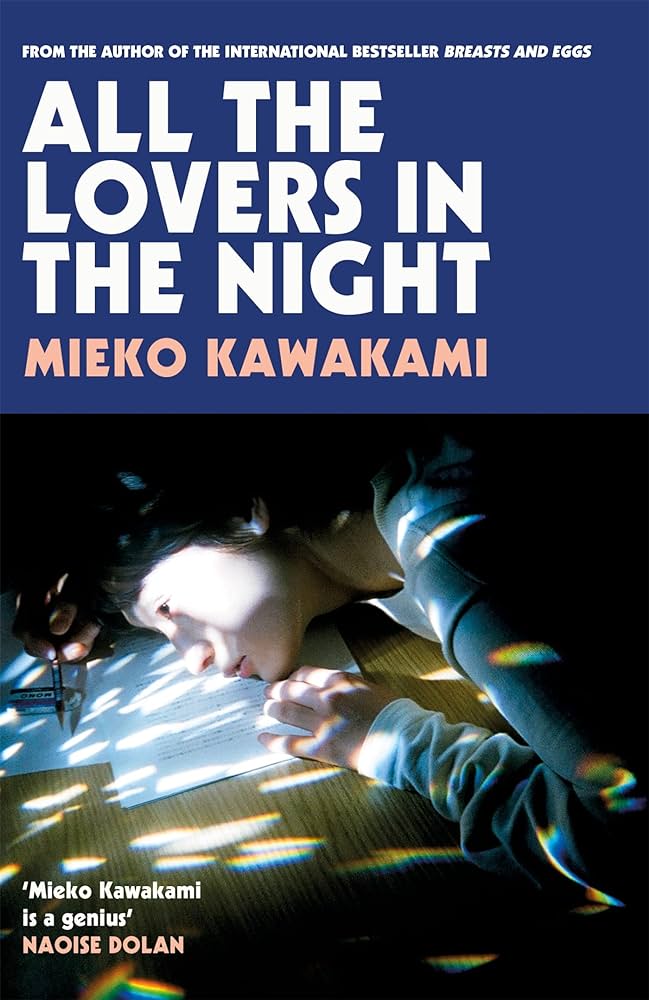
Author: Mieko Kawakami
Title: All the Lovers in the Night
The second (and last sadly ;_;) book that I bought at the fair this year. This is probably my favourite Kawakami work.The book centers around a 34 year old woman that works as a freelance proofreader and has to navigate around friendships and relationships for the first time in her life.
What do you gift a woman that has no interests, social life, or seems to lack any personality at all? You gift her one of the most common perfumes, one that is inoffensive and sells well. Like Chloé, for example. Take a stroll to fragrantica.com and you may find the same sentiment echoed with the very first con of the perfume being listed as "Some may find it too common or clean-smelling". That is exactly what the protagonist of this book received, from two separate women on two occasions not too far apart.
Fuyuko has spent her life existing, but nothing more. She has no interests and no inner life, she has no friends. Once she finally got the chance to make some friendships in her 30's, her social ineptitude jumps out in the form of extremely awkward dialogues full of her just repeating the last two words the other person said, or her nodding along, or her not knowing what to say and letting an awkward silence stop the flow of the conversation.
Frankly, in every shape and form, Fuyuko is what people today would call an NPC.
Through the book you get to observe Fuyuko as she slowly comes to terms with herself and I thought the journey was pretty entertaining. I've noticed Kawakami really likes characters that go into monologues, and while I thought it felt too anime-ish in Heaven, I think it has a place in this book. Fuyuko, after all, forces people to go into monologues and just yap about themselves.
I enjoyed all of the characters Fuyuko interacted with, as they offered different perspectives and alternatives to her. Hijiri, her assertive and brutally honest boss was especially great. I love how she went into a monologue on how all of her emotions and expressions are actually completely derivative and not that of herself. But then, at the end of the novel, she seems to be furious Fuyuko channeled her expression into herself, as she got drunk and wore her clothes and heels and got her hair and makeup done. Random hypocrisies like that are visible in almost all characters Fuyuko interacts with. Another amazing moment was when Fuyuko's old classmate catches up with her. She goes on to trauma dump on her about her miserable life she got into because she made the same choices everyone else did. But she sees nothing wrong with ending that with "but having kids was the best decision of my life. You should have children as well, Fuyuko", as if she sees no extreme irony in that statement. Great moment lmao.
A lot of people seem to find this book really boring. Saying it goes nowhere, or that the main character is extremely boring. I honestly don't think that books that focus solely on interpersonal drama and mundane daily life are boring so I got past that easily, but the main character being boring? Yeah, that's kind of the point here lmao. Personally, in fiction that has a clear plot and large story is where I can't stand wet rag characters that seem to have a million other people thirsting after them or wanting to be their friend despite their lack of personality. But Fuyuko isn't really cowardly at the point in her life we meet her in. She switched jobs, and for the first time in her life felt a bit invigorated. She was noticed due to the one thing she's been doing well for over a decade, which was her work. She saw her miserable reflection, and she did do something about it. That's the whole premise of the book! What, can people not handle character development anymore? We watch her struggle with alcoholism just to be able to speak her mind for the first time in her life, I wouldn't say that that's particularly weak willed lmfao.
Well, I don't know why I got so worked up over this. I don't find myself relating to Fuyuko at all, so it's not like I'm projecting or anything. This book just really sat well with me, and I think it provides a lot of good social commentary outside of the main plot.
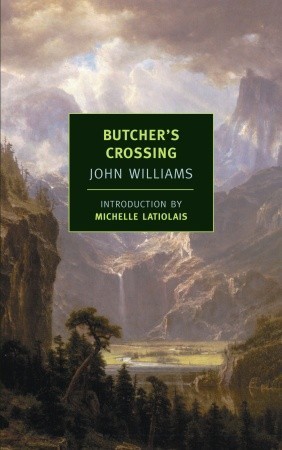
Author: John Edward Williams
I've been reading this book for way too long, and I've got a good reason for it. I couldn't handle more than 20-30 pages at once because I felt like I got so invested (once it got going around page 100~ or so) and all the misfortunes and bad decisions of the main cast got me too frustrated. If you want to witness the fallings of man's greed and a good man vs. nature story do give this book a try.The story begins with an innocent city boy that wants to experience wilderness, a pretty basic motif and a decent setup for a coming of age story. But all that waits is disappointment after disappointment. Disaster after disaster. Just when you think things got good...
I have to say this book has one of the best denouements and endings I've seen in books. I feel like usually the last act and the ending tend to be the weakest part of the book. Like the writer always rushes it, or doesn't want it to end and you can see it in the story. Maybe they don't know how to end it so it ends on a flat note. I got used to this and as such I rarely expect an amazing ending. But the last act of this story had me gripped, it was the highest point of the story for me, narration wise. For some reason I found it so vivid and well done. The beginning of the ending was also straight up horror in the best way.
Lastly, I really like the (lack of) character interactions. Four men go on an 8 month trip, and they barely speak 5 pages worth of dialogue. Lmao.
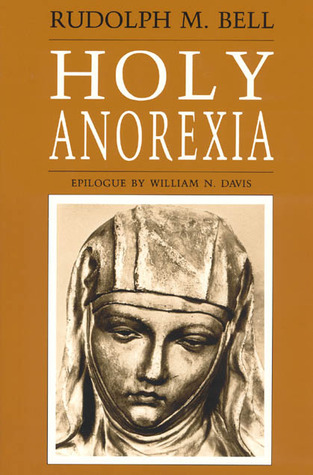
Author: Rudolph M. Bell
After finishing this book, I'm left a little disappointed. Holy Anorexia was supposed to be a book that examines the lives of italian female saints during the ~12-16th century and compares it to modern anorexic women and girls. That said, the book was written in 1985, and I feel like much has changed about "modern anorexia" since then... I feel like this originally proposed comparison was never fully realised, at least not to the extent that I was expecting. What this book did deliver on, was recounting the lives of many female saints, and presenting them as women that consistently went against the grain, against what was expected from a woman, and from a holy woman as well. In that aspect, the book was a worthwhile read. Religion and sainthood was one of the rare options for women to remove themselves from what was expected of them, and even then they risked being called heretics if they were too extreme. Either way, pretty interesting.There was also some general feminist analysis done as well, but I wish the book went further in with the why's and how's. Some decent paragraphs and conclusions were made here or there, but I wish the research went in deeper!
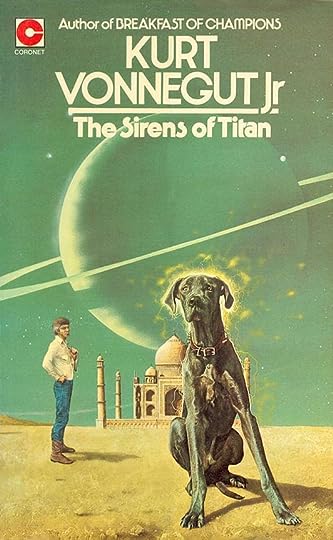
Author: Kurt Vonnegut
I have taken long breaks in reading this book simply because I wasn't in a book reading mood, but this year I decided to read a certain amount of books so.. I have to catch up! Maybe I should do a page limit instead.. Anyway, Kurt Vonnegut is most known for his work Slaughterhouse-Five which I... never read. I'm a bit behind when it comes to all of these American classics. Considering it's much shorter than Sirens of Titan I might read it for real. Ok so onto the actual book.Sirens of Titan is a sci-fi, much like most of Vonnegut's works, from what I noticed. It's also a black comedy and a satire. I enjoyed the flow of the book for the most part, but there were a few sections, namely the one where the main character sets back to return to Earth, where the pacing felt a little bit off. That's also when I ended up taking the biggest pause in reading, and it took me a few tries to get over that hump, and then when I did I ended up reading the rest in like an hour. Since the story has multiple big twists/reveals, I can't really talk about the plot in detail. The main things you need to know is that the plot revolves around the richest and most luckiest man on Earth, who got his future revealed to him by a man that can see all that was and all that ever will be.
The story mostly deals with the concept of free will and the ridiculousness of organized religion, if that's your thing I think you can't miss with this book. The humor is very dry and matter-of-fact and it reminds me a lot of Douglas Adams - which makes sense because Douglas Adams said Vonnegut was a big influence.
Lastly, I really enjoyed the ironic twist regarding the man that can see everything. The book was an entertaining and thoughtful read.
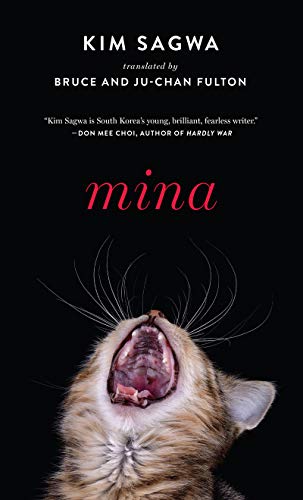
Author: Kim Sagwa
I think I may have found this book on some "unhinged female characters" list. If I didn't, well, it surely belongs there. Despite being called Mina, that isn't the main character of this book. Nor is she the main subject the book is based around on. No, Mina, is the reason why the main character, Crystal, went mad, more or less. Well, it isn't really Mina, it's more that the main character is already an insane sociopath, the kind that is born from South Korea's highly competitive, caricaturishly capitalist society, that prioritizes looks and status above all else. She kind of serves as a vessel for all of that which is wrong, and she regurgitates the tenets that society taught her back at us. The writing is very snappy, kind of like watching a quick cut montage. At first I found the switching povs very confusing, but then by like 20% of the book the pov settles on a single character and stays mostly consistent throughout. Sometimes it was hard to tell whether there's an omniscient narrator or whether Crystal is expressing her own thoughts but you get used to it. It's a very short book, I basically read it in one afternoon. One important warning though, there's a scene where a kitten is tortured and killed and while not as in-detail as the one in The Sailor Who Fell from Grace with the Sea it's still pretty drawn out and disturbing to read.Crystal was rotten through and through, so if you like books with actually evil protagonists you might like this. The ending is chilling, and I took it as a warning that tells us what the future holds if those that prevail and dominate are people like Crystal and her male counterpart.
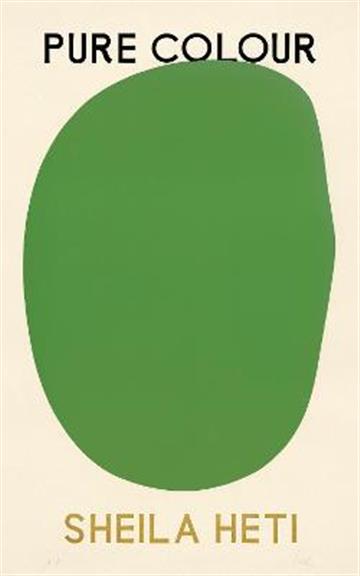
Author: Sheila Heti
I don't know how I found this book. I swear I saw it in the book thread with a description "this book was life changing" or something along those lines, but I combed through all of the threads and couldn't find it. This was the first book in a long while that I haven't finished, and that I'm honestly dropping despite how short it is. Usually I'm too curious to read the book to the end, to see if my opinion will change, so I suffer through the unlikeable parts - and I do end up liking the book. But this time, I just couldn't do it. Impossible. This book was pure drivel and I couldn't stand it. Philosophizing about utter bullshit. It's like if a horny 5th grader decided he wanted to be really deep so he put in a ton of really misplaced vulgar references to shock you but also theorized about the stupidest concepts we're already fully aware of. Except it's not a horny 5th grader, it's a rich gen x Canadian woman. Every positive review of this book, especially the descriptions on good reads and all the awards it won, are not descriptions at all. They don't tell you anything except how life changing and amazing and inquisitive and intelligent this book is. Because they can't tell you anything about it, there's nothing to tell. Omg I'm being so mean... But let me focus on one paragraph. So the main character's father dies (not really a spoiler, his death is what most of the book deals with kind of), and we get multiple paragraphs, no, chapters, talking about his spirit entering her body and using extremely sexual and suggestive metaphors such as ejaculate, penetration etc. Whatever, it's weird but whatever. But we get the following paragraph: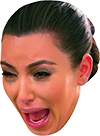
You're shivering and chilled after you father's death you say? The father whom you loved very much? What is this weird physical, emotional or psychological phenomenon you say? You may never know? Hm? Could it be... sadness? Could it be... SHOCK???????? BECAUSE YOUR FATHER, WHOM YOU LOVED VERY MUCH, JUST DIED???? HM????? IT'S NOT SHOCK??? IT'S A MYSTERY YOU SAY????? HOW WEIRD AND STRANGE!!! WHAT A MYSTERIOUS FEELING???? WE MAY NEVER KNOW????????
Okay. I'm fine. I attached this image of Kim Kardashian because it most appropriately sums up my reaction during that part. And you know what I did? I powered through this. I powered through her talking about her dads spirit cumming into her very being (very deep, just like dick in vagina haha look I can do it too), and you know where it lead me to? Do you want to know? Well, it led me to her killing herself and her own spirit entering a leaf. A fucking leaf. And then inside that leaf she continued to talk about her father's spirit still being inside of her, while she was a leaf. MOST thunk provoking. And that's where I called it. No more. I never got so angry at a book before... Are we playing retarded? Is that it? Is that the point of this book? Well, I will never find out, and I don't care. I'm glad this book made me feel genuine rage because, it's good. It's productive, I mean, look at this rant!
I will admit I might have totally missed the point. Maybe if I read this last month, last year or next week and next month I would've liked it. Maybe it would've resonated with me. I usually don't like to shit on books excessively, and I can always conclude it with "I wasn't the intended audience". Like I can always see why something doesn't fit me and why someone else would like this better. Not here though. If I had to say something nice is that I liked how all over the place the story was, and it actually kept me wanting to read more, to a certain point.
One last insult, if I had to compare this book to something, it would be this tiktok with a title of "a night at a philosopher's salon" where a bunch of upper middle class larpers gather around books and candles in their little dark academia outfits to probably discuss the same topics in the way they're being discussed in that book. I'm so disrespectful today, I'm sorry to everyone reading this lmao.

